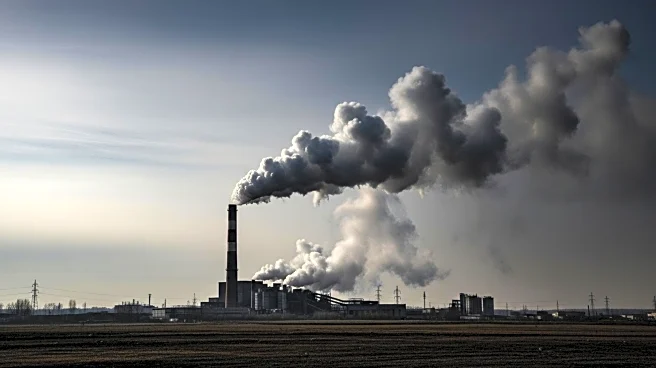What's Happening?
Coal miners suffering from black lung disease are protesting at the Department of Labor, criticizing the Trump administration for not enforcing workplace safety regulations. The protests coincide with efforts by the administration to revive the coal industry, which is known for its significant contribution to climate change. The miners argue that the administration is neglecting their health by not enforcing limits on silica dust, a known carcinogen. A recent study by New York University highlighted the health benefits of closing a coal-processing plant near Pittsburgh, showing a 20% drop in emergency room visits for respiratory issues in the surrounding neighborhoods.
Why It's Important?
The revival of the coal industry under President Trump has sparked significant debate regarding environmental and public health impacts. Coal is a major contributor to climate change and poses health risks to communities near coal facilities. The protests by coal miners underscore the tension between economic interests and health concerns. The study from New York University provides evidence that closing coal plants can lead to immediate health improvements, which could influence public policy and regulatory decisions. The administration's stance may affect its relationship with labor groups and environmental advocates.
What's Next?
The ongoing protests by coal miners may lead to increased pressure on the Trump administration to reconsider its approach to coal industry regulations. There could be calls for stricter enforcement of safety standards to protect workers from harmful exposure. Additionally, the findings from the New York University study might prompt further research into the health impacts of coal facilities, potentially influencing future policy decisions. Stakeholders, including environmental groups and public health advocates, are likely to continue pushing for cleaner energy alternatives.
Beyond the Headlines
The ethical implications of prioritizing industry revival over worker safety and environmental health are significant. The administration's actions may lead to long-term shifts in public perception regarding fossil fuels and their role in the U.S. energy landscape. The protests highlight the cultural and social dimensions of energy policy, as communities grapple with the balance between economic benefits and health risks.









